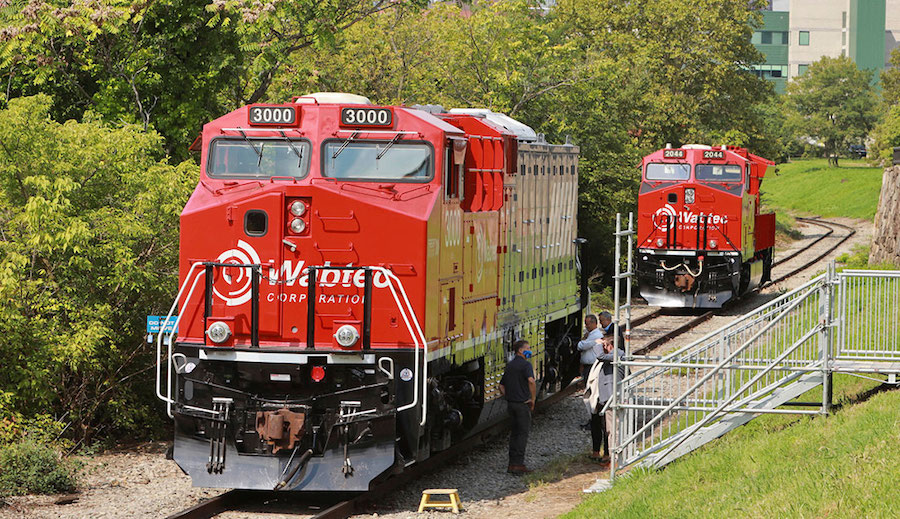
It noted that a full transition to net zero emissions technology of the entire fleet of rail locomotives would reduce Rio Tinto Iron Ore’s diesel-related carbon emissions in the Pilbara by about 30% a year.
The company’s managing director of port, rail and core services, Richard Cohen, said receiving the prototype locomotives, expected next year, will be an important early step for the company on the path toward a decarbonized Pilbara.
“Our partnership with Wabtec is an investment in innovation and an acknowledgement of the need to increase the pace of our decarbonisation efforts,” Cohen said in the statement.
The investment comes as prices for iron ore have soared in recent days, hitting last week their highest levels since October. The commodity is responsible for around 90% of the company’s profits.
Mounting pressure
Rio joins other iron ore producers in the Pilbara to adopt new technologies to cut emissions at their operations. Wabtec said in September a deal to supply trains to Roy Hill Holdings, majority-owned by Australia’s richest woman Gina Rinehart.
Fortescue Metals Group A(SX: FMG) announced last week that it would buy two battery-electric trains from Caterpillar, also to be delivered in 2023.
Rio, which is also is the world’s second largest miner, has pioneered the adoption of ground-breaking technology at its Western Australia operations.
In 2019, it rolled out an A$1.37 billion ($982m) autonomous train fleet, said to be the world’s largest robot at the time.
The AutoHaul plan, part of the “Mine of the Future” project Rio launched in 2008, has allowed the company miner to transport iron ore from 16 mines to ports in Dampier and Cape Lambert.
Rio has also been expanding its fleet of autonomous haul trucks, which are controlled from Perth, just like the unmanned trains.
The company has been under pressure from investors to cut Scope 3 emissions, generated by its customers in the steel industry, which accounts for about 7% of global emissions.
The company is to reduce the emissions generated by its steel-making clients by 30% over the next decade. That’s in line with rival BHP (ASX: BHP), although not as ambitious as Fortescue Metals Group (ASX: FMG). The world’s fourth largest iron ore producer aims to achieve net-zero Scope 3 emissions by 2040.




